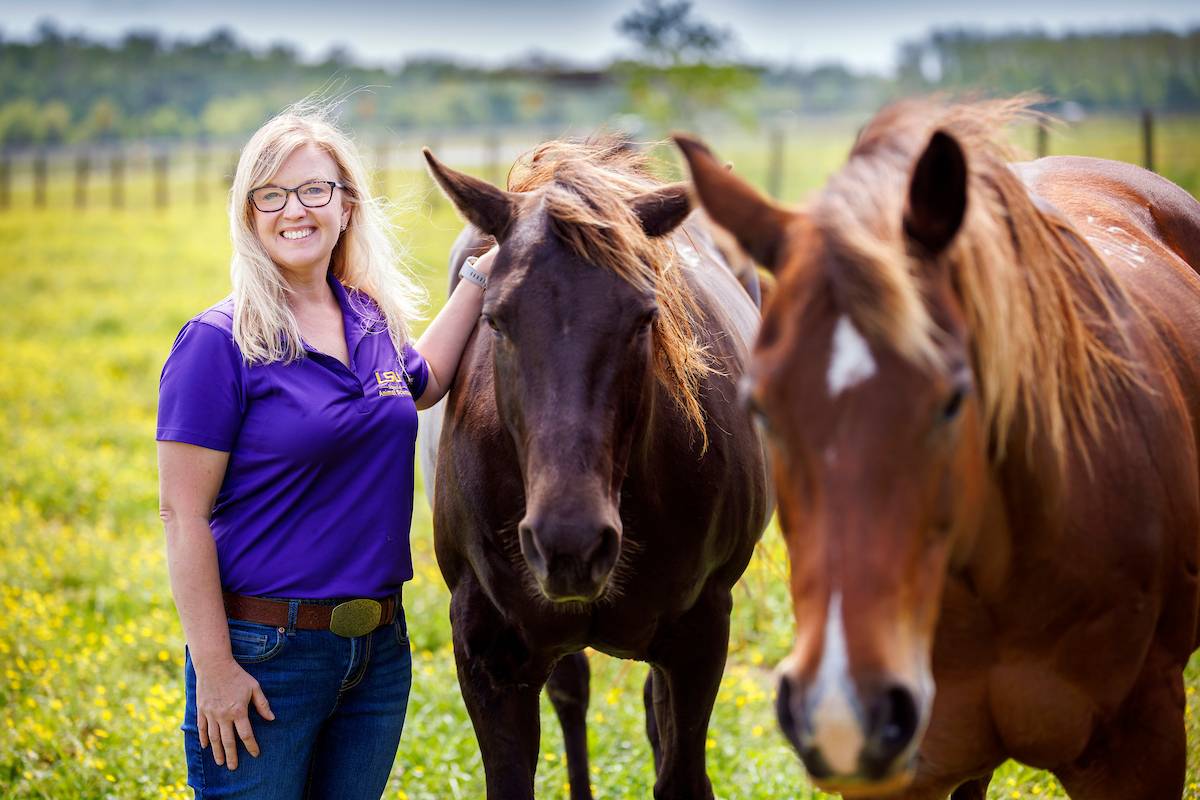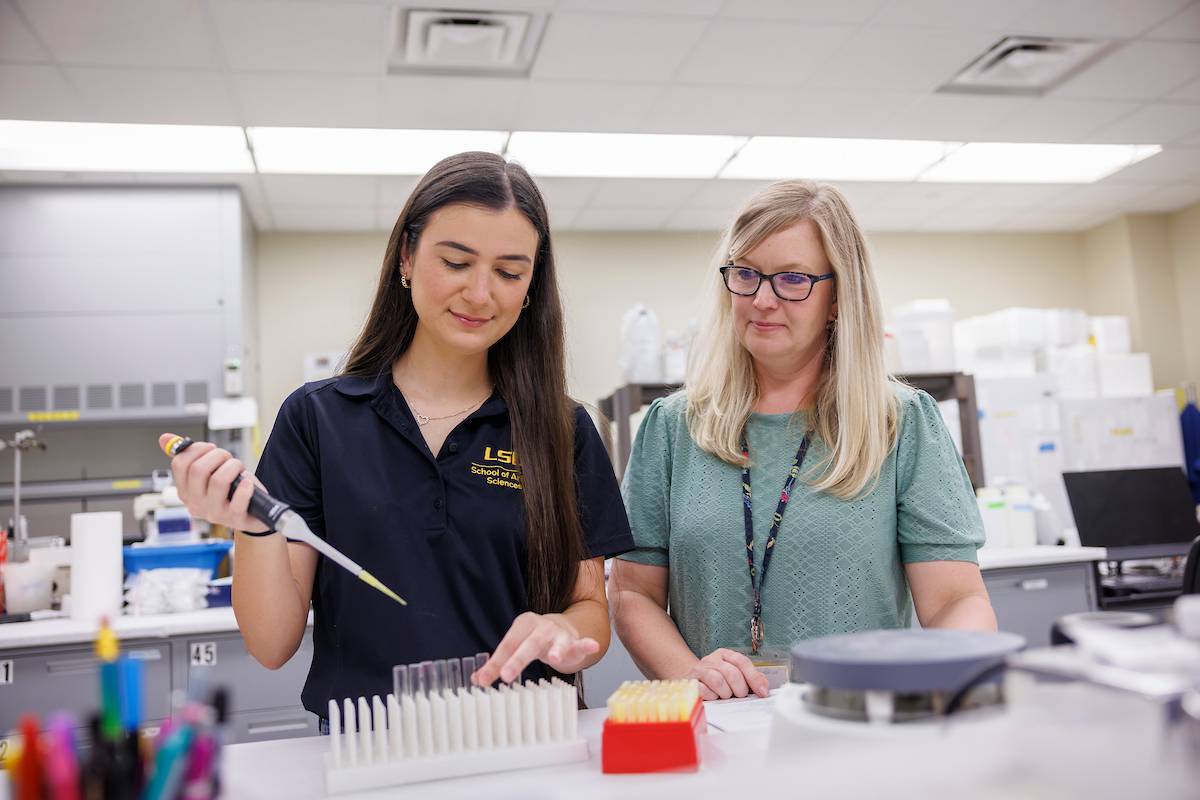Advancing Equine Breeding: How LSU Research is Reshaping Louisiana’s Horse Industry
October 13, 2025
Every year, equine breeders across Louisiana face the same biologically rooted challenge: Mother Nature’s schedule doesn’t align with the demands of the horse industry.
Mares are seasonal breeders, only becoming reproductively active during the long days of summer, and they gestate for 11 months. But early foals—those born in January or February—are especially prized, particularly in the racing world, where even a few months’ head start can mean a competitive advantage on the track.

Erin Oberhaus, an assistant professor and equine physiologist in the School of Animal Sciences, is researching and developing a hormonal treatment to advance breeding season.
– Photos by Eddy Perez
That means breeders must coax mares to breed in late winter, when their reproductive systems are naturally dormant. Traditionally, that has meant months of artificial lighting to “trick” the mares’ brains into thinking spring has arrived—a process that is management-intensive and does not guarantee a rapid or predictable response.
Enter LSU’s Erin Oberhaus. An assistant professor and equine physiologist in the School of Animal Sciences, Oberhaus has spent more than a decade researching and developing a hormonal treatment to advance breeding season and jumpstart a mare’s reproductive cycle with a single injection. Instead of relying on 60 to 70 days of artificial lighting, this treatment helps mares ovulate weeks earlier—saving time, money, and barn resources.
“It’s one shot that can potentially eliminate months of light therapy,” Oberhaus said. “It gives breeders a reliable, efficient way to induce an earlier start to the breeding season.”
— Video by Grant French
Economic Value Beyond the Racetrack
For the robust equine industry in Louisiana—home to four racetracks and a wide range of equine events—the ability to breed foals earlier in the year can mean more competitive animals, increased revenue, and greater overall efficiency in breeding operations.
“Horses are a significant agricultural commodity in the state and sometimes rival beef cattle in economic value,” Oberhaus said.
This isn’t just about producing horses for recreation—it’s about sustaining jobs, supporting rural economies, and preserving a way of life for many Louisianans.
Erin Oberhaus, assistant professor and equine physiologist in the School of Animal Sciences
In addition, early research suggests the hormonal treatment works across various climates and elevations, with successful tests in Texas and Colorado, making it a game-changer not just for Louisiana but for breeders nationwide.
Louisiana’s equine industry generates significant economic activity each year. In addition to racing and recreation, horses are still widely used for ranch work and cultural events across the state. “Horses are deeply embedded in our agricultural system,” she said,
By advancing reproductive management practices, this research ensures this important sector remains competitive and sustainable for future generations.
Training the Next Generation of Equine Experts
Oberhaus credits LSU and the LSU AgCenter for providing the foundation her research needed to thrive—from facilities to animals to people. Based at the Doyle Chambers Central Research Station, her team has reliable access to horses year-round, along with support from farm managers, research staff, and fellow scientists.

Erin Oberhaus (right) watches as an LSU student uses a pipette.
“None of this would be possible without the infrastructure and teamwork we have here,” she said. “You need access to animals, skilled handlers, and the ability to collaborate with experts in other disciplines to push the work forward.”
Her lab isn’t just producing data—it’s also shaping the next generation of equine scientists. Oberhaus teaches horse production and animal handling classes, giving students hands-on experience with research-grade animals and modern breeding techniques. This blend of research, education, and outreach supports LSU’s land-grant mission and sets it apart as a driver of innovation for Louisiana’s agricultural industries.
Looking to the Future
The goal now, Oberhaus said, is to get this treatment into the hands of practitioners so breeders across Louisiana—and beyond—can reap the benefits. And while the focus is currently on equine reproduction, the potential applications go even further. Understanding ovarian function in mares could inform research in other species, including endangered animals and even humans.
“We still have a lot to learn about ovarian dynamics,” she said. “Every discovery here has the potential to advance reproductive science more broadly.”
Discover stories showcasing LSU’s academic excellence, innovation, culture, and impact
across Louisiana.Next Step


